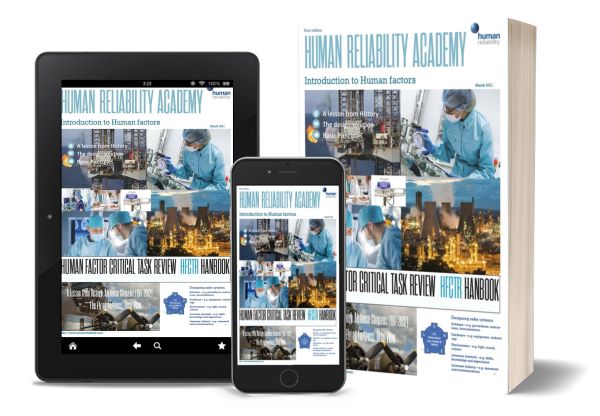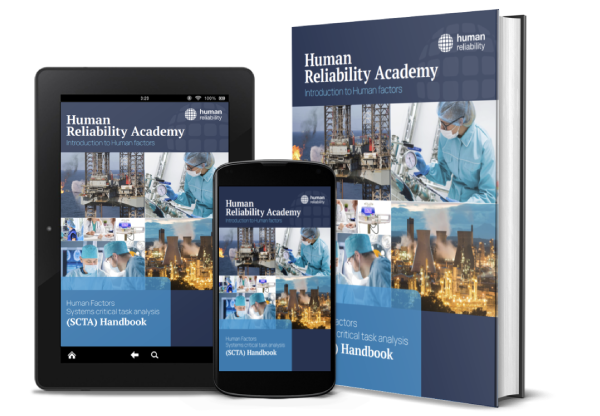Managing human performance includes how we learn from events, deviations, normal work and manage risks. It is a key area for ensuring good and safe operations in the workplace.
Managing human performance includes how we learn from events, deviations, normal work and manage risks. It is a key area for ensuring good and safe operations in the workplace.
Performance variability in the workplace is part of everyday work. Many instances are normal and unremarkable (e.g. the printer is out of ink), some instances are frustrating (e.g. you cannot print a prescription for a patient), but other instances will be intolerable (e.g. poor print quality means the dosage of a prescription is misread leading to a medication error).
Where incidents and major deviations are experienced, the organisation should try to learn all it can about the conditions that caused it, so the system can be made more resilient in the future.
Where major risks are identified before anything has gone wrong, the organisation should integrate Human Factors into a proactive risk management programme to ensure adequate controls and conditions are in place to protect the system.
Performance variability can remain hidden in the system, which is why talking to staff and observing them do tasks is so important to reveal these practices which could be considered deviations if they’re bad, or innovations if they’re good.


Performance variability in the workplace is part of everyday work. Many instances are normal and unremarkable (e.g. the printer is out of ink), some instances are frustrating (e.g. you cannot print a prescription for a patient), but other instances will be intolerable (e.g. poor print quality means the dosage of a prescription is misread leading to a medication error).
Where incidents and major deviations are experienced, the organisation should try to learn all it can about the conditions that caused it, so the system can be made more resilient in the future.
Where major risks are identified before anything has gone wrong, the organisation should integrate Human Factors into a proactive risk management programme to ensure adequate controls and conditions are in place to protect the system.
Performance variability can remain hidden in the system, which is why talking to staff and observing them do tasks is so important to reveal these practices which could be considered deviations if they’re bad, or innovations if they’re good.
Different sectors have their own approaches and concepts for Human Performance Management. We can advise on incident investigation, setting up a risk management programme or the ongoing learnings from normal work.
Corrective And Preventive Action are required when nonconformities and deviations occur. If not managed well lists and lists of CAPAs can overwhelming. We want to move from a firefighting mode to proactively stopping these before they occur. Follow us to find out about our work on organisational learning.
The Human Factors COMAH Delivery Guide was developed by the HSE following a need to establish a framework for inspecting Human Factors (HF) at COMAH establishments. Click here for an overview and summary.
Safety Critical Task Analysis (SCTA) is a proactive approach to identifying and managing Human Factors risks. It is required by sites that fall under the COMAH regulations in the UK.
When an incident occurs we want to understand what has happened and learn as much as possible, exploring active failures and latent conditions, to prevent similar incidents occurring in the future. We’re less interested in blame, and more interested in sustainable system change. Speak to us about our to do Human Factors for incident investigation.
Vestibulum ante ipsum primis in faucibus orci luctus et ultrices posuere cubilia Curae; Sed aliquam, nisi quis porttitor congue, elit erat euismod orci, ac placerat dolor lectus quis orci. Phasellus consectetuer vestibulum elit.

This 30min FREE mini-course will introduce you to Human Factors and Critical Task Reviews. This paves the way for our other resources and services for proactive Human Factors risk management.

This short and engaging handbook provides a great overview of human Factors Critical Task Reviews (HFCTR) and how it helps people across sectors reduce error and improve human performance.
Get the latest newsletter by signing-up today





This free 30 minute mini-course will introduce you to Human Factors, and how critical task reviews are used to improve the quality and safety of tasks and processes across different industries.
It’s free, informative and you’ll even get a certificate of completion.


This short and engaging handbook provides a great overview of Human Factors Systems Critical Task Analysis (SCTA) and how it helps people across sectors reduce error and improve human performance.
SCTA can help keep people safe and delivers value.


Popular Pages
© Human Reliability 2025.
1 School House, Higher Lane,
Dalton, Lancashire,
WN8 7RP, UK.
T: +44 (0) 1257 463 121
E: [email protected]